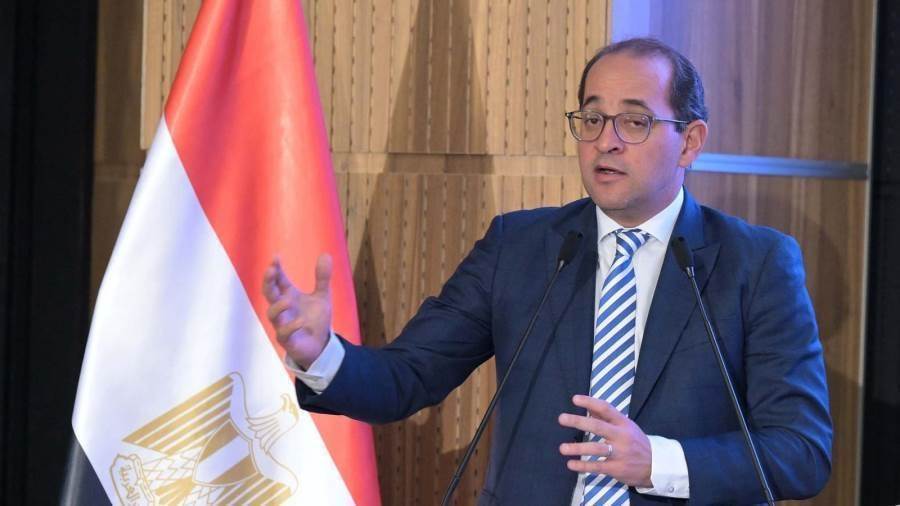MINISTER OF FINANCE: STRONG IMPROVEMENT IN FINANCIAL & ECONOMIC INDICATORS OVER 9 MONTHS, SUPPORTED BY STABLE CONDITIONS & TRUST BUILDING

In a series of “reassurance
messages” delivered to the Parliament, Egypt’s Minister of Finance, Ahmed Kijouk, provided a detailed update on the country’s improved financial and economic indicators. The report highlights a significant recovery driven by better economic conditions, measures to build confidence among business partners and financiers, and a series of targeted fiscal policies. Despite challenges such as falling revenues from the Suez Canal and the petroleum sector, the overall performance of the economy has shown robust improvement.
Key Highlights of the Nine-Month Period
Overall Economic and Financial Improvement:
All key financial and economic indicators have experienced strong improvement over the past nine months. This achievement is largely attributed to enhanced economic conditions and proactive trust-building efforts with the business community and financial stakeholders.
Primary Surplus Achievement:
The government recorded the highest primary surplus at approximately EGP 435 billion, representing 2.5% of GDP. This impressive result was attained despite declines in revenues from the Suez Canal and the petroleum sector.
Sectoral Revenue Challenges and Support: Suez Canal: The revenue from the Suez Canal declined by EGP 110 billion. Energy Sector: The government provided additional support of EGP 150 billion to the energy sector to cushion against external price fluctuations and other challenges. Revenue and Expenditure Growth:
From July to March of the past fiscal period, general revenues grew by about 32%, while expenditures increased by 24%.
Tax Revenue Milestone:
Tax revenues reached a record high of EGP 1.4 trillion with an increase of 38%. This milestone was achieved without imposing new burdens on citizens; rather, it was driven by simplifying, mechanizing, and broadening the tax base through strong partnerships with the private sector.
Investment Climate Improvements:
Efforts are underway to enhance the investment climate by further strengthening trust with financiers, including through the provision of tax and customs incentives.
Fiscal Stability:
The ratio of expenditures to GDP has stabilized at the previous year’s level, and the fiscal deficit has decreased to 6.3% of GDP.
Foreign Currency Reserves and Inflation: Reserves: The net international reserves stand at USD 47.7 billion. Inflation: The inflation rate has significantly decreased from 33.3% in March 2024 to 13.6% in the recent period. Private Sector Investment:
The private sector now accounts for 59% of total investments in the first half of the current fiscal year, with a year-on-year growth rate of 80%.
Sectoral Growth:
Key sectors have demonstrated strong performance:
Tourism: Growth reached 13.1%. Non-Petroleum Manufacturing: Expanded by 12.4%. Information and Communications Technology (ICT): Increased by 15.1%. Social and Public Spending:
Over the nine-month period, average spending increases were noted in several vital sectors:
Health: Up by 27%. Education: Increased by 23%. Food Subsidies: EGP 95 billion in subsidies grew by 37% year-on-year. Social Safety Net: The “Takaful wa Karama” program reached EGP 30 billion with a 24% increase. State-Supported Healthcare: Allocations for treatment reached EGP 11 billion with a 35% annual growth. Industrial Production: Supported with an injection of EGP 8 billion, marking a 128% growth. Export Promotion: EGP 7 billion was allocated to boost exports, recording a 78% increase. External Debt and Investor Confidence: External debt for budget agencies fell by USD 1 billion over the eight-month period. Renewed investor confidence has enabled the extension of debt maturity, with the average maturity now reaching 1.8 years as of December 2024.
Analysis
The Minister’s update underscores several important trends:
Resilient Fiscal Management:
Despite sector-specific challenges, strong fiscal management and targeted support measures have led to a notable surplus.
Strategic Revenue Reforms:
The record tax revenue performance, achieved through reforms rather than additional burdens, highlights the efficacy of simplifying procedures and expanding the tax base.
Boosted Private Sector Participation:
High investment rates from the private sector and rapid growth in key industries indicate a thriving economic environment that is increasingly reliant on private capital.
Social and Economic Equity:
Increased government spending on vital social services—health, education, and food subsidies—points to a balanced approach aimed at ensuring broad-based economic benefits.
Improved Investor Confidence:
The combination of fiscal discipline, supportive reforms, and tangible economic growth has re-established investor trust, as evidenced by the extended debt maturity.
Egypt’s recent economic performance reflects a period of robust recovery and improved fiscal discipline, supported by both policy initiatives and strong private sector engagement. The reported improvements, particularly the record tax revenues and primary surplus achievement, underscore the effectiveness of government measures in balancing economic support and fiscal responsibility. As the nation continues to implement reforms and foster investor confidence, the outlook remains positive for further stability and growth in the months ahead.
